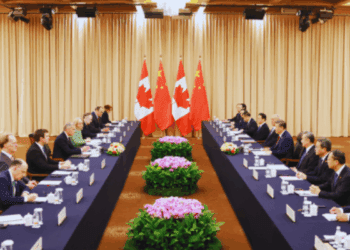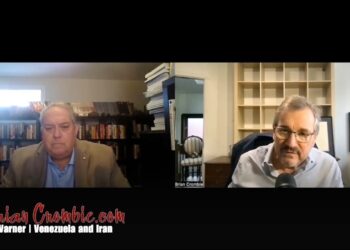Europe and America are drifting apart while Canada watches. And yet the trans-Atlantic (TA) relationship, forged at the end of the Second World War, has been the anchor of foreign policy for all three partners for two generations. America’s relative decline, the rise of other issues and players attracting its attention, and Europe’s inability to get its foreign policy act together are all conspiring to marginalise what had been the bedrock relationship of an entire international relations world.
In an effort to reflect on the decline of this relationship and what is worth resurrecting from it, a conference was held in Brussels on October 12th and 13th. Organised by the Centre for European Studies (CES) and the International Republican Institute (IRI), it brought together leading thinkers in the fields of foreign policy, national security, financial and economic policy, culture, history and more. Participants from Canada, the US and the EU exchanged ideas and opinions under the title of “The Future of the West – Trans-Atlantic Relations in a More Difficult Environment”. The event was co-chaired by two distinguished Atlanticists: Wilfried Martens, former Prime Minister of Belgium and now President of CES, and Lorne Craner, President of IRI.
MLI Managing Director Brian Lee Crowley was one of two Canadians invited to complete the third side of the North Atlantic Triangle, speaking on a panel entitled “Between G-2 and G-20: The Trans-Atlantic Economy and Global Governance.” Brian has found time in an extremely busy schedule to provide this update of the discussions:
The consensus of those attending is that the TA relationship is a vital one that must be preserved and enhanced, not least because of the shared history and values that makes us together not only the greatest economic force in the world (representing well over one half of the world economy), but also a beacon to the world in matters of human rights and democracy. But saving the relationship in the face of America’s greater preoccupation with China, the Middle East, Afghanistan and North Korea, to mention but a few, is a challenge. That challenge was painfully driven home for the Europeans by the outcome of the Copenhagen Conference on Climate Policy. This was an issue on which the EU had lavished a lot of time, money and energy, but as they bitterly observed, it took one breakfast between President Obama and the Chinese delegation for all that to be overtaken by events.
Canada clearly has its traditional role to play as a helpful and constructive go-between on both sides of the Atlantic, and this conference was no exception. All agreed that while the relationship should and could be saved, it was a long term project. MLI will be part of that project and we will bring you updates from the front in the months and years to come.
Posted by George Young




